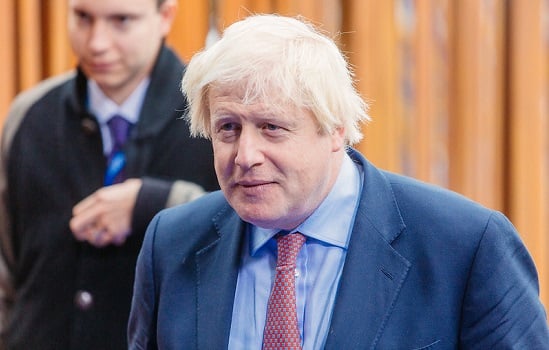
Many in the arts and cultural sector are dismayed by Johnson's victory
Photo: Arno Mikkor
‘The bullies have won’: sector reacts to General Election result
An arts charity has experienced a groundswell of support and sector bodies are doubling down on calls for immigration reform.
The arts and cultural sector is bracing for impact after the results of Thursday’s election, which dashed many workers’ hopes of a Labour-led government.
Online reactions ranged from wry to mournful. Cultural policy researcher James Doeser said he “made a few quid on betfair, a little something to add to the relocation fund” while Royal Shakespeare Company Deputy Artistic Director Erica Whyman lamented that “the bullies have won”.
Others were defiant. “The culture war is where progressives have power … stand your ground,” said Tamasha Theatre Company Artistic Director Fin Kennedy.
READ MORE:
- Election 2019: Labour, Liberal Democrats and Green Party culture policies
- What the Conservatives, SNP, Plaid Cymru and Brexit Party are promising this election
- Musicians call for protections to limit Brexit damage
Though Boris Johnson’s Government has promised £110m per year for arts education and business rates relief for music venues, Conservative MPs have expressed little enthusiasm for publicly funding arts and culture.
A replacement for Culture Secretary Nicky Morgan, who is now leaving parliament, is yet to be announced.
Arts emergency
Arts Emergency, a charity that mentors marginalised young people seeking creative and cultural careers, has received a boost to its Christmas appeal, with people promoting the work of non-profits as increasingly vital under the incoming Government.
More than 200 people donated or joined its networking scheme on Friday morning following a groundswell of online support: “keep sharing – literally. Be generous, be more generous, be the line between hope and despair,” the organisation tweeted.
“There is no government that can stop people helping people, and this is everything right now.”
Supporters called the campaign a feel-good reaction that “makes you feel less useless”.
Immigration a high priority
Chief Executive of the Creative Industries Federation Alan Bishop said the future shape of the UK’s immigration system was an “immediate and urgent” priority as Brexit approaches.
The sector’s success relies on “diverse global talent”, and immigration should run on a points-based system that assesses potential permanent workers’ value to industry, Bishop said.
“We must create an immigration system that both looks beyond arbitrary measures such as salary and is not inaccessible through cost and bureaucracy.”
Domestic measures are also needed to ensure inclusive, sustainable growth: “Talent can be found everywhere, but opportunity cannot.”
The Incorporated Society of Musicians (ISM) too has doubled down on calls for a two-year, multi-entry touring visa for musicians travelling around the European Union. “Irrespective of the results of today’s General Election, the priorities outlined in the ISM’s Manifesto for Musicians remain the same,” Chief Executive Deborah Annetts said.
Join the Discussion
You must be logged in to post a comment.